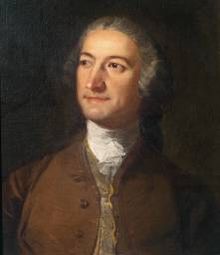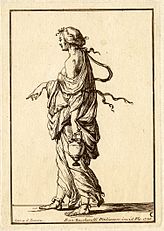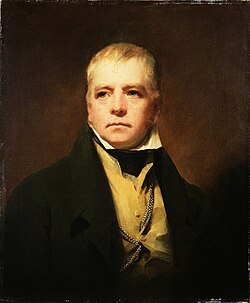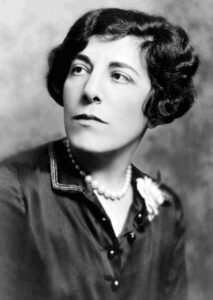Dear Zazie, Here is today’s Lovers’ Chronicle from Mac Tag to his muse. Follow us on twitter @cowboycoleridge. Are you in the dark in MacArthur Park? Rhett
The Lovers’ Chronicle
Dear Muse,
© copyright 2019 mac tag/cowboy coleridge all rights reserved
we dance ‘neath the moonlight
slowly swayin’ to a standstill
your face turns upward
the look in your eyes
tells me all i need to know
it took so long to get here
tell me it does not have to fade
© copyright 2018 mac tag/cowboy coleridge all rights reserved
another thunderstorm
i will pour the drinks
c’mon, sit down
listen with me
i promise;
not bipolar
but i am torn
i have been intimate
with wondrous desire
yet, i have plumbed
the depths of sadness
i found somethin’
i could speak to
somethin’
i could call my own
a place to rest my head
somethin’ i had never known
the night i held you
to the sound
of the rain
| Francesco Zuccarelli | |
|---|---|

Portrait of Zuccarelli by Richard Wilson
|
|
Today is the birthday of Francesco Zuccarelli (Pitigliano, 15 August 1702 – 30 December 1788 Florence); painter of the late Baroque or Rococo period. Perhaps the most important landscape painter to have emerged from his adopted city of Venice during the mid-eighteenth century. His Arcadian views became popular throughout Europe and especially in England where he resided for two extended periods. In 1768, Zuccarelli became a founding member of the Royal Academy of Arts, and upon his final return to Italy, he was elected president of the Venetian Academy.
Gallery





-

Landscape with the Penitent Magdalene. c. 1728. Drawing. British Museum.
-

Standing Female Figure Carrying a Lamp. Etching. Florence, 1728.
-

Il Malmantile Racquistato. Etching. Florence, 1731
-

Landscape with River and Shepherds at Rest. c. 1736. Accademia Carrara, Bergamo.
-

Self-portrait. Drawing in chalks. 1736 or 1738. Royal Academy of Arts, London.
-

Bacchanal. Mid–1740s. Gallerie dell’Accademia, Venice.
-

Roman Capriccio with Triumphal Arch, the Pyramid of Cestius, St. Peter’s Basilica and the Castle of the Holy Angel. Bernardo Bellotto and Francesco Zuccarelli. Mid–1740s. Galleria nazionale, Parma.
-

Burlington House. Antonio Visentini and Francesco Zuccarelli. 1746. Windsor Castle, Windsor.
-

Landscape with a Waterfall. 1747–8. Accademia Carrara, Bergamo.
-

Old Testament Playing Cards. Zuccarelli and Antonio Visentini. Venice, 1748. British Museum.
-

Pastoral Scene. Early 1750s. Hermitage Museum, St. Petersburg.
-

Landscape with Milking Scene. Mid–1750s. Ca’ Rezzonico, Venice.
-

Refreshment during the Ride. c. 1760. Fitzwilliam Museum, Glasgow.
-

The Finding of Moses. 1768. Windsor Castle, Windsor.
-

Bull Hunting. Early 1770s. Gallerie dell’Accademia, Venice.
-
A Landscape with Shepherds Resting Under a Tree by a Cascade. Undated. Getty Museum, Los Angeles
| Sir Walter Scott, Bt | |
|---|---|

Raeburn’s portrait of Sir Walter Scott in 1822.
|
|
Today is the birthday of Sir Walter Scott, 1st Baronet, FRSE (College Wynd, Edinburgh 15 August 1771 – 21 September 1832 Abbotsford, Roxburghshire); historical novelist, playwright and poet. Scott’s novels and poetry are still read, and many of his works remain classics of both English-language literature and of Scottish literature. Famous titles include Ivanhoe, Rob Roy, Old Mortality, The Lady of the Lake, Waverley, The Heart of Midlothian and The Bride of Lammermoor.
On a trip to the Lake District with old college friends he met Charlotte Genevieve Charpentier (or Carpenter), daughter of Jean Charpentier of Lyon in France, and ward of Lord Downshire in Cumberland, an Episcopalian. After three weeks of courtship, Scott proposed and they were married on Christmas Eve 1797 in St Mary’s Church, Carlisle (a church set up in the now destroyed nave of Carlisle Cathedral). After renting a house in George Street, they moved to nearby South Castle Street.
Verse
The Lady of the Lake (1810)
- The stag at eve had drunk his fill,
Where danced the moon on Monan’s rill,
And deep his midnight lair had made
In lone Glenartney’s hazel shade.- Canto I, stanza 1.
- With head upraised, and look intent,
And eye and ear attentive bent,
And locks flung back, and lips apart,
Like monument of Grecian art,
In listening mood, she seemed to stand,
The guardian Naiad of the strand.- Canto I, stanza 17.
- And ne’er did Grecian chisel trace
A Nymph, a Naiad, or a Grace
Of finer form or lovelier face.- Canto I, stanza 18.
- A foot more light, a step more true,
Ne’er from the heath-flower dash’d the dew.- Canto I, stanza 18.
- On his bold visage middle age
Had slightly pressed its signet sage,
Yet had not quenched the open truth
And fiery vehemence of youth;
Forward and frolic glee was there,
The will to do, the soul to dare,
The sparkling glance, soon blown to fire,
Of hasty love or headlong ire.- Canto I, stanza 21.
- Soldier, rest! thy warfare o’er,
Sleep the sleep that knows not breaking;
Dream of battled fields no more,
Days of danger, nights of waking.- Canto I, stanza 31.
- Hail to the Chief who in triumph advances!
- Canto II, stanza 19.
- Some feelings are to mortals given
With less of earth in them than heaven;
And if there be a human tear
From passion’s dross refined and clear,
A tear so limpid and so meek
It would not stain an angel’s cheek,
‘Tis that which pious fathers shed
Upon a duteous daughter’s head!- Canto II, stanza 22.
- Time rolls his ceaseless course.
- Canto III, stanza 1.
- Like the dew on the mountain,
Like the foam on the river,
Like the bubble on the fountain,
Thou art gone, and forever!- Canto III, stanza 16 (Coronach, stanza 3).
- The rose is fairest when ‘t is budding new,
And hope is brightest when it dawns from fears.
The rose is sweetest wash’d with morning dew,
And love is loveliest when embalm’d in tears.- Canto IV, stanza 1.
- Art thou a friend to Roderick?
- Canto IV, stanza 30.
- Come one, come all! this rock shall fly
From its firm base as soon as I.- Canto V, stanza 10.
- Respect was mingled with surprise,
And the stern joy which warriors feel
In foeman worthy of their steel.- Canto V, stanza 10.
- Who o’er the herd would wish to reign,
Fantastic, fickle, fierce, and vain!
Vain as the leaf upon the stream,
And fickle as a changeful dream;
Fantastic as a woman’s mood,
And fierce as Frenzy’s fever’d blood.
Thou many-headed monster thing,
Oh who would wish to be thy king!- Canto V, stanza 30.
- Where, where was Roderick then!
One blast upon his bugle-horn
Were worth a thousand men.- Canto VI, stanza 18.
 Today is the birthday of Edna Ferber (Kalamazoo, Michigan; August 15, 1885 – April 16, 1968 New York City); novelist, short story writer and playwright. Her novels include the Pulitzer Prize-winning So Big (1924), Show Boat (1926; made into the celebrated 1927 musical), Cimarron (1930; adapted into the 1931 film which won the Academy Award for Best Picture), Giant (1952; made into the 1956 film of the same name) and Ice Palace (1958), which also received a film adaptation in 1960.
Today is the birthday of Edna Ferber (Kalamazoo, Michigan; August 15, 1885 – April 16, 1968 New York City); novelist, short story writer and playwright. Her novels include the Pulitzer Prize-winning So Big (1924), Show Boat (1926; made into the celebrated 1927 musical), Cimarron (1930; adapted into the 1931 film which won the Academy Award for Best Picture), Giant (1952; made into the 1956 film of the same name) and Ice Palace (1958), which also received a film adaptation in 1960.
Giant stars Elizabeth Taylor, Rock Hudson and James Dean and features Carroll Baker, Jane Withers, Chill Wills, Mercedes McCambridge, Dennis Hopper, Sal Mineo, Rod Taylor, Elsa Cárdenas and Earl Holliman.
Giant was the last of James Dean’s three films as a leading actor, and earned him his second and last Academy Award nomination – he was killed in a car crash before the film was released. His friend Nick Adams was called in to do some voice dubbing for Dean’s role. In 2005, the film was selected for preservation in the United States National Film egistry by the Library of Congress as being “culturally, historically, or aesthetically significant”.
Ferber was a member of the Algonquin Round Table, a group of wits who met for lunch every day at the Algonquin Hotel in New York. Ferber and another member of the Round Table, Alexander Woollcott, were long-time enemies, their antipathy lasting until Woollcott’s death in 1943, although Howard Teichmann states in his biography of Woollcott that their feud was due to a misunderstanding. According to Teichmann, Ferber once described Woollcott as “a New Jersey Nero who has mistaken his pinafore for a toga”.
Ferber collaborated with Round Table member George S. Kaufman on several plays presented on Broadway: Minick (1924), The Royal Family (1927), Dinner At Eight (1932), The Land Is Bright (1941), Stage Door (1936), and Bravo! (1948).
Ferber never married, had no children, and is not known to have engaged in a romance or sexual relationship. In her early novel Dawn O’Hara, the title character’s aunt even remarks, “Being an old maid was a great deal like death by drowning – a really delightful sensation when you ceased struggling.” Ferber did take a maternal interest in the career of her niece Janet Fox, an actress who performed in the original Broadway casts of Ferber’s plays Dinner at Eight (1932) and Stage Door (1936).
Ferber was known for being outspoken and having a quick wit. On one occasion, she led other Jewish guests in leaving a house party after learning the host was anti-Semitic. Once, after a man joked about how her suit made her resemble a man, she replied, “So does yours.”
The quality of her work was so high that many reviewers believed a man to have written her narratives under a pseudonym of a woman.
Today is the birthday of a great songwriter, Jimmy Webb. He has written so many classic songs it was difficult pickin’ one for the song of the day. I finally narrowed it down to this one.
MacArthur Park
Spring was never waiting for us, girl / It ran one step ahead / As we followed in the dance
Between the parted pages / And were pressed in love’s hot, fevered iron / Like a striped pair of pants
MacArthur’s Park is melting in the dark / All the sweet, green icing flowing down / Someone left the cake out in the rain
I don’t think that I can take it / ‘Cause it took so long to bake it / And I’ll never have that recipe again, oh no
I recall the yellow cotton dress / Foaming like a wave / On the ground around your knees / The birds like tender babies in your handsAnd the old men playing checkers, by the trees
MacArthur’s Park is melting in the dark / All the sweet, green icing flowing down / Someone left the cake out in the rain
I don’t think that I can take it / ‘Cause it took so long to bake it / And I’ll never have that recipe again, oh no
There will be another song for me / For I will sing it / There will be another dream for me / Someone will bring it
I will drink the wine while it is warm / And never let you catch me looking at the sun / And after all the loves of my life / After all the loves of my life, you’ll still be the one
I will take my life into my hands and I will use it / I will win the worship in their eyes and I will lose it / I will have the things that I desire / And my passion flow like rivers through the sky
And after all the loves of my life / Oh, after all the loves of my life / I’ll be thinking of you and wondering why
MacArthur’s Park is melting in the dark / All the sweet, green icing flowing down / Someone left the cake out in the rain
I don’t think that I can take it / ‘Cause it took so long to bake it /And I’ll never have that recipe again / Oh no, oh no, no, no, oh no
After all the loves of my life, I will be thinkin’ of you and wonderin’ why. I do not think I can take it.
Mac Tag
The song of the day – Waylon Jennings’s version of MacArthur Park


No Comments on "The Lovers’ Chronicle 15 August – stay – art by Francesco Zuccarelli – verse by Sir Walter Scott – birth of Edna Ferber"